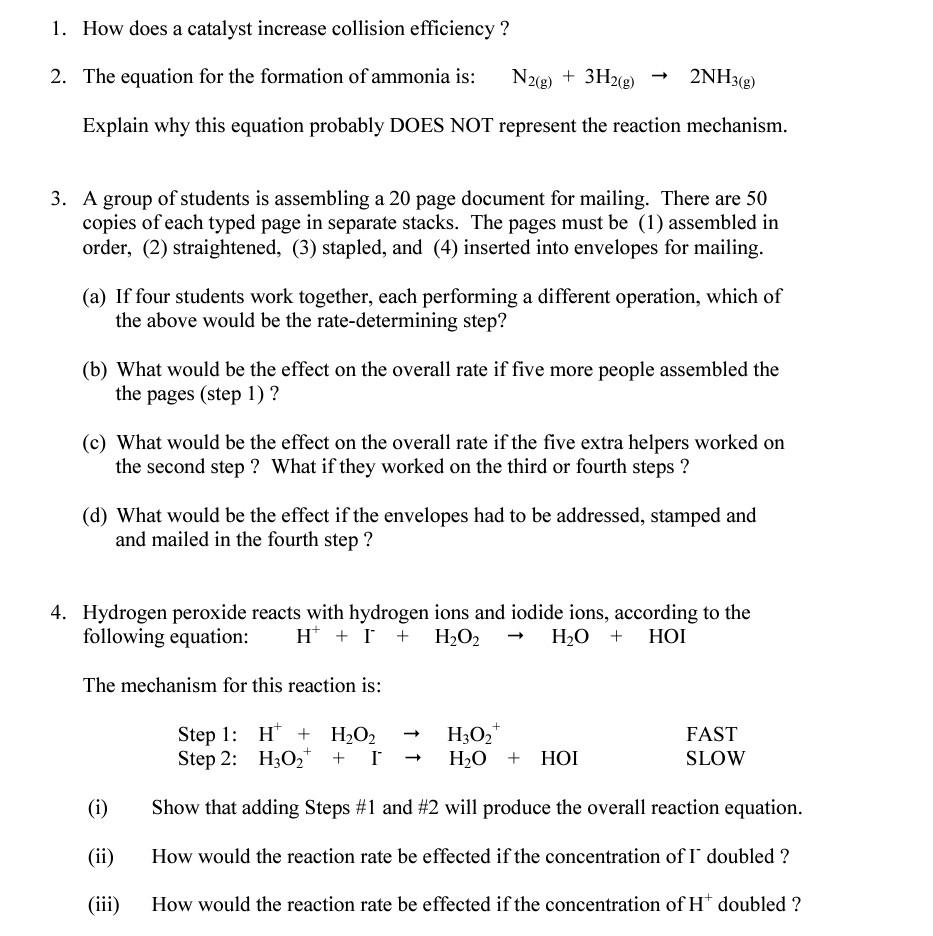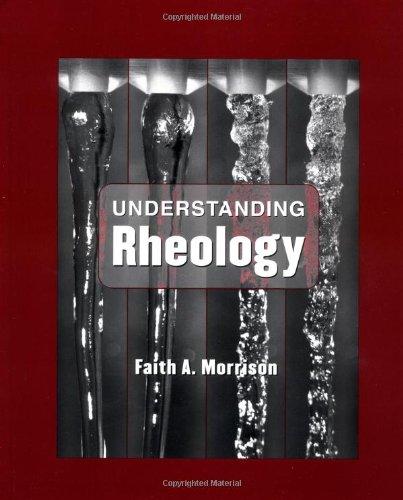Answered step by step
Verified Expert Solution
Question
1 Approved Answer
1. How does a catalyst increase collision efficiency? 2. The equation for the formation of ammonia is: N2(g)+3H2(g)2NH3(g) Explain why this equation probably DOES NOT

1. How does a catalyst increase collision efficiency? 2. The equation for the formation of ammonia is: N2(g)+3H2(g)2NH3(g) Explain why this equation probably DOES NOT represent the reaction mechanism. 3. A group of students is assembling a 20 page document for mailing. There are 50 copies of each typed page in separate stacks. The pages must be (1) assembled in order, (2) straightened, (3) stapled, and (4) inserted into envelopes for mailing. (a) If four students work together, each performing a different operation, which of the above would be the rate-determining step? (b) What would be the effect on the overall rate if five more people assembled the the pages (step 1)? (c) What would be the effect on the overall rate if the five extra helpers worked on the second step? What if they worked on the third or fourth steps? (d) What would be the effect if the envelopes had to be addressed, stamped and and mailed in the fourth step? 4. Hydrogen peroxide reacts with hydrogen ions and iodide ions, according to the following equation: H++I+H2O2H2O+HOI The mechanism for this reaction is: Step1:Step2:H++H2O2H3O2+H3O2++IH2O+HOISLOWFAST (i) Show that adding Steps \#1 and \#2 will produce the overall reaction equation. (ii) How would the reaction rate be effected if the concentration of Idoubled ? (iii) How would the reaction rate be effected if the concentration of H+doubled
Step by Step Solution
There are 3 Steps involved in it
Step: 1

Get Instant Access to Expert-Tailored Solutions
See step-by-step solutions with expert insights and AI powered tools for academic success
Step: 2

Step: 3

Ace Your Homework with AI
Get the answers you need in no time with our AI-driven, step-by-step assistance
Get Started


